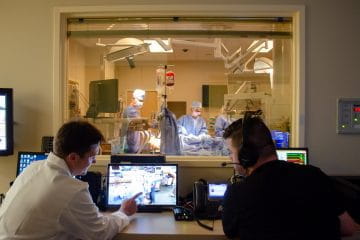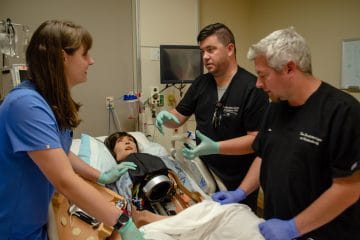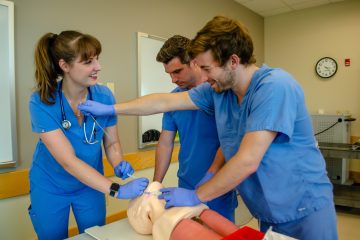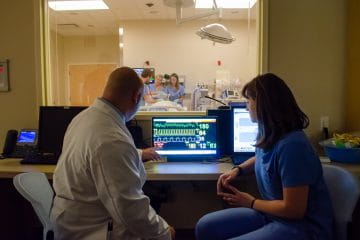A Fellowship for All Disciplines
The Indiana University School of Medicine Medical Simulation Fellowship is based in the Department of Emergency Medicine, and the program is open to doctors across all specialties in medicine as well as medical school graduates outside of the United States. Fellows have the opportunity to develop expertise in the educational, administrative and research aspects of simulation and receive the leadership training necessary to direct their own simulation program. Simulation training takes place at the Indiana University Health Simulation Center at Fairbanks Hall. The program ranges from one to two years and accepts two fellows per year.
Apply
Education Program
Simulation Training Facilities
The IU Health Simulation Center at Fairbanks Hall serves as the primary training site. It is a 30,000 square-foot facility containing ten clinic rooms, five inpatient rooms, three acute care rooms, an operating room, a delivery suite and a simulated ambulance bay. Multiple high-fidelity and low-fidelity mannequins are available, including adults, children, babies, newborns and a birthing mother. The center is equipped with dedicated debriefing rooms with full AV support to debrief and support skill development. Additional training sites include:
- IU School of Medicine Surgery Skills Lab
- IU School of Medicine Cadaver Lab
- Eskenazi Hospital Simulation Lab
- Emergency Response Training Institute (ERTI)
- IU School of Nursing Simulation Center
- IU School of Medicine–Terre Haute Simulation Lab
- IU School of Medicine–Bloomington Simulation Lab
- IU School of Medicine–Evansville Simulation Lab
- Simulation labs throughout the IU Health Hospital Network

Colleen Friedly
Fellowship Coordinator for IU School of Medicine Department of Emergency Medicine











